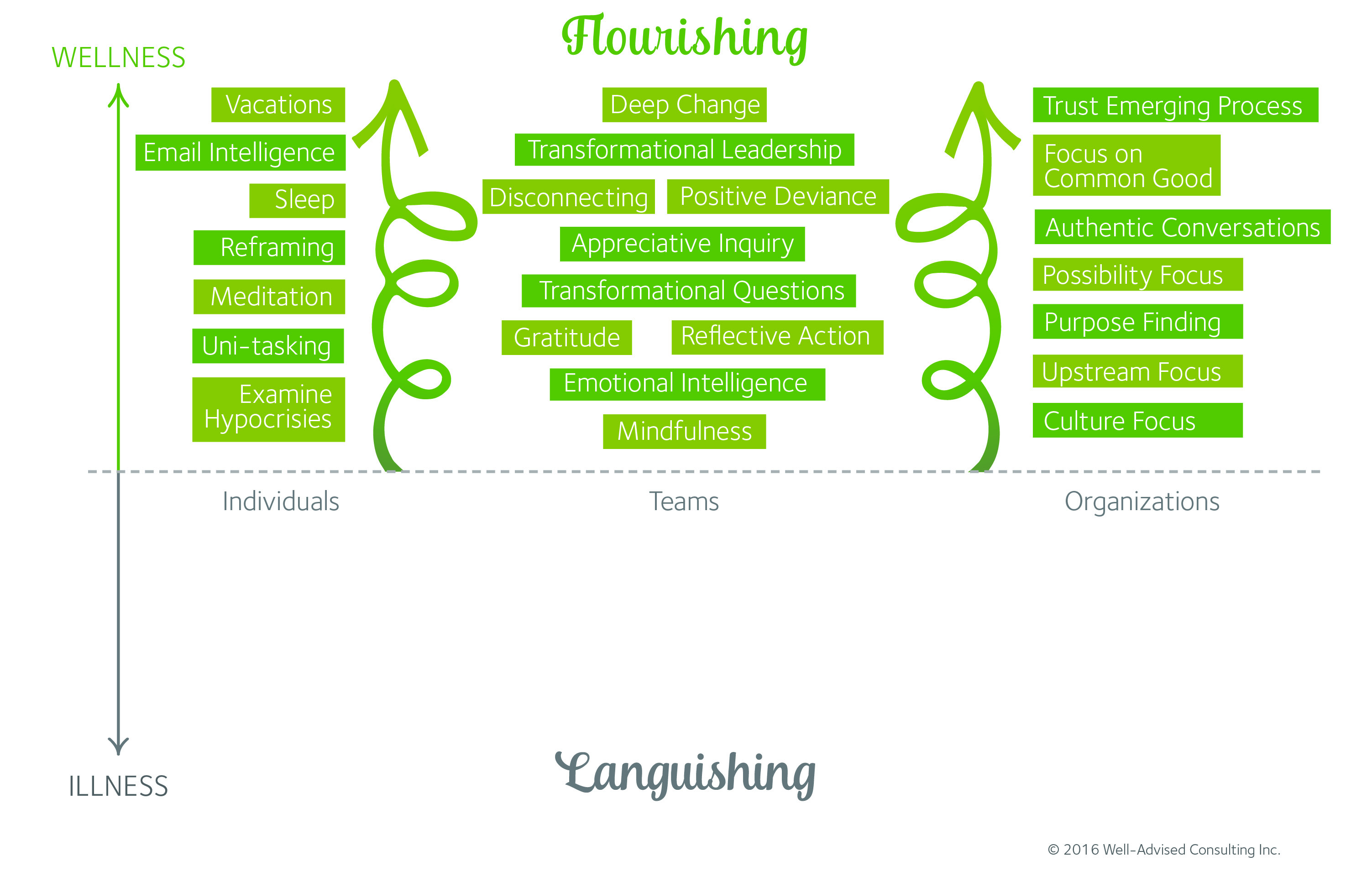
17 Jul Adopt These Practices to Avoid Slow Death in the Workplace
When I get a consulting request from a small business or team to work with them on their culture, it is often when they have reached the size of about 35 employees. Up until this point the business or group has been growing and there has been a focus on the products, services, sales and marketing strategies, perhaps even the customer experience.
Typically, not a lot of thought has been put into the people doing the work, the culture that is developing, and how people can support each other. Two of the experts I interviewed for A Better Place To Work: Daily Practices That Transform Culture: Dr. Robert Quinn and Dr. Martin Shain, describe how, unless we are consciously working at a more positive culture, the organization will be getting more negative. Quinn calls this downward spiral “slow death.” Shain calls it “the cost of doing nothing.”
Here is a short excerpt from my book about this phenomena:
Culture is not always seen as being important to business goals. However, there is a “cost to doing nothing.” This is a phrase often used by Dr. Martin Shain, an organizational health and legal expert who has studied the implications of negative psycho-social environments at work. He was a keynote speaker at some of our earlier conferences, and when I interviewed him I asked him about this.
“The cost of doing nothing refers to the fact that nothing is ever neutral – things are either going forward or going backwards, so if you’re doing nothing, things are basically going backwards.
“Those costs are measurable and quantifiable, so you can use them as the baseline for moving forward. But if you don’t do anything, things are much more likely to get worse than to get better.”
The choices we make every day shape the story of our workplace. What is the story you’re writing in yours? Perhaps you see a need for a radical shift in your culture. Perhaps you’ve been through bad times, and you’re the one pushing to make work a better life experience for everyone.
Whatever your motivation, what’s important for you to know is that you have the power to create a better place to work.
That’s right. You.
Cultures shift positively through the practices we adopt and promote within our workplaces. There are evidence-based practices that any leader can develop to start an upward spiral within their own life, their team, department or throughout the entire organization.
For example, the practice of improving social reflexivity in our teams, meaning how the team supports the well-being of its members, creates a more positive team climate. If teams do not have a good socio-emotional climate they will only succeed in the short term and eventually break down.
Dr. Michael West, who will join me as a guest speaker in our fall 8-Weeks To A Better Place To Work online course says that for teams “It is important that we have a strong balance of positive to negative emotions. We must create environments that are positive for people.”
One specific practice is having an effective team debrief at the end of each meeting. This simply means having a five-minute review at the end of each meeting to assess how the meeting went from a social standpoint. This is not about what tasks need to be done and who will do them, but more to do with how the meeting went, whether everyone felt they had an opportunity to give input, how the meetings could be improved, etc. A meta-analysis of 46 studies on team debriefs showed that those teams who regularly carry out this practice are on average 25% more effective.
Other examples of workplace practices that can be adopted to create a more positive culture where people can flourish are listed in the diagram below:
Practices That Promote Flourishing
What are your current workplace practices? What can you implement from this list to increase the positivity and resilience in your teams and your organization as a whole?
Want to know more about practices that transform workplace culture? Follow this blog for bi-weekly ideas to create your “better place to work” from Deborah’s new book A Better Place To Work: Daily Practices That Transform Culture.
If you want to delve deeper into these practices join Deborah’s online course “8 Weeks To A Better Place To Work“ starting again October 18/18. Log in every week from the comfort of your office or home and join others, like you, who are engaging in new practices to improve the health and positivity in their workplaces. A complimentary copy of A Better Place To Work will be sent to you as a part of this course. It’s like a book club, with online coaching – fun, informative and hugely practical!
Order your copy of A Better Place To Work: Daily Practices That Transform Culture with reduced prices available for bulk orders for your team and organization.


